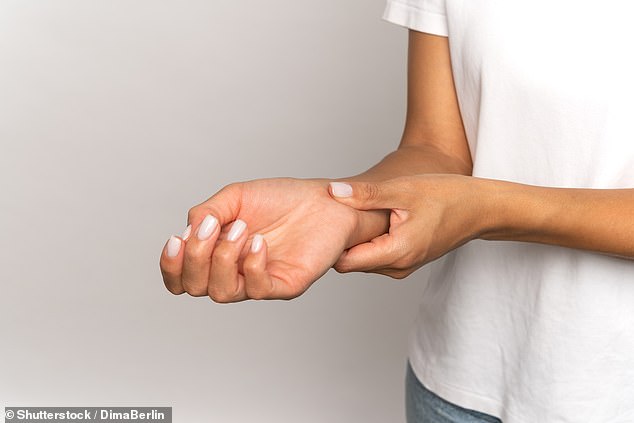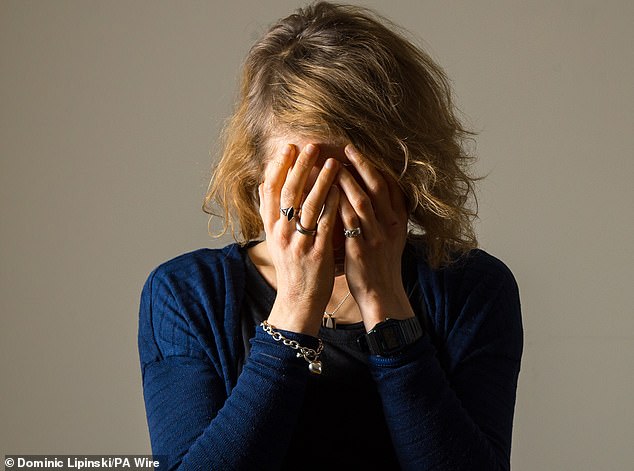Going through menopause makes rheumatoid arthritis more painful, a study suggests.
The national survey found that four in five women reported that their arthritis worsened during menopause. For a tenth, symptoms got “a lot” worse.
Researchers questioned 779 women with rheumatoid arthritis who were perimenopausal, menopausal, or postmenopausal.
The study, published in the journal Musculoskeletal Care earlier this month, also found that hormone replacement therapy (HRT) was not effective in helping to reduce symptoms.
Nearly half of the women who completed the survey were taking HRT, but only a third said the drug had reduced their pain to a “moderate or significant” degree.
Rheumatoid arthritis, which affects more than half a million people in the UK, is a chronic disease that causes swelling, pain and stiffness in the joints because the immune system mistakenly attacks healthy cells in the body.
While there are treatments for the symptoms, there is no cure.
Nearly 93 percent of women reported that they had not had any medical conversations about menopause with a doctor, and most felt that arthritis specialists need better training on how to treat them.
A national survey found that four in five women reported that their rheumatoid arthritis worsened during menopause (file photo)

Rheumatoid arthritis is a chronic disease that causes swelling, pain and stiffness in the joints because the immune system mistakenly attacks healthy cells in the body (file photo)
Experts believe that falling estrogen levels during menopause are to blame for worsening symptoms.
In a review published in BMC Rheumatology earlier this year, the authors said estrogen levels play a “crucial role” in the condition.
Other studies have shown that women who experience early-onset menopause are almost three times more likely to develop rheumatoid arthritis.
The study authors wrote: “Patients feel that members of the rheumatology team should have more training and discuss menopause more.”

